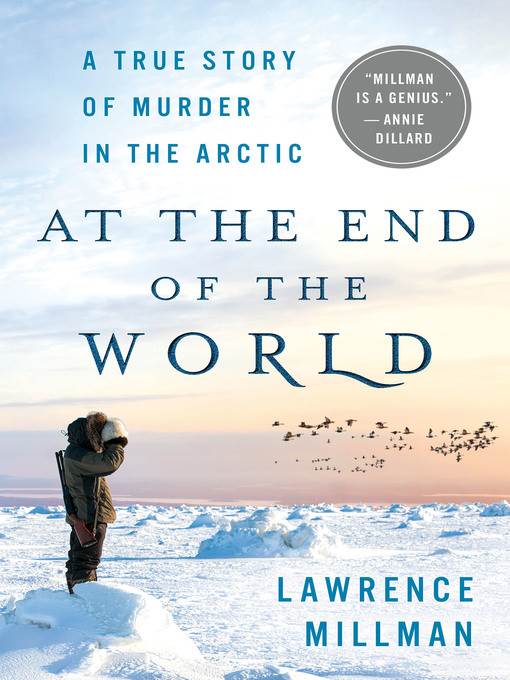
At the End of the World
A True Story of Murder in the Arctic
کتاب های مرتبط
- اطلاعات
- نقد و بررسی
- دیدگاه کاربران
نقد و بررسی

November 1, 2016
A true-crime account of an Arctic mass murder in the 1940s blends subtly with a prophecy about the dangers of cyberaddiction.Millman (Giant Polypores and Stoned Reindeer, 2013, etc.) writes about remote places with an ecologist's conscience, and he has expressed a preference for destinations beyond the reach of Google. So it's easy to see how this little-known tragedy came to obsess him and to appreciate how he skillfully provides parallels to contemporary times on the dangers of one culture infiltrating another. He quotes George Bernard Shaw on the Bible as "the most dangerous book on earth" and shows how it became so within one isolated Inuit community. A meteor shower convinced some that the end of the world was near, and one man convinced his neighbors that he was Jesus incarnate and that another man was God. What happened next horrified and embarrassed the Inuit culture, and they did their best to forget it, while the Canadian justice system treated it differently than if the crimes were committed outside the culture rather than within it. But as one of the natives the author met suggested, "try to kill the past and it will get stronger and more angry...like a polar bear you've shot and only wounded." Millman's investigation details how "God" and "Jesus," along with others, began to see signs of "Satan" among their neighbors and ended up committing or ordering multiple murders of those possessed by the devil. Some were acquitted on temporary insanity, while others were given wrist-slap sentences for lesser offenses such as manslaughter. "By comparison, the Salem witchcraft trials could claim only one Satan," writes the author. Providing contemporary context, the author chronicles one of his exploratory visits to the Arctic, which coincided with 9/11. Millman sees the internet and the cyberculture surrounding it as the new Bible and its worshippers destroying the culture it has ostensibly improved. Even those who find the jeremiad too strident should be impressed with the manner by which Millman connects the dots.
COPYRIGHT(2016) Kirkus Reviews, ALL RIGHTS RESERVED.

Starred review from January 1, 2017
In 1941, a disturbing series of murders occurred in Canada's remote Belcher Islands. Both the victims and perpetrators were Inuit, and the resulting investigation by the Royal Canadian Mounted Police, which revealed an epic amount of cultural confusions and collisions, did little to bring the tragedy out of obscurity. The enormously gifted Millman, who has traveled extensively in the north, including the Belchers, dug deeply into both the historical record and the memories of witnesses. The resulting chronicle, in which he eschews the comfort of a standard chronology for a more elegiac and meditative consideration of the past and present, is a powerful example of how writers can bring history to life through their passionate interest in a topic. Millman pairs his research into the murders, which were sparked by religion and the relentless encroachment of modern civilization, with his observations about how so much of twenty-first-century communication has pulled people away from each other and into solitary electronic worlds. The result is a smart, emotional, and thought-provoking analysis of this sad occurrence's lingering trauma, made worse by historical cultural differences and our current crisis in communication and understanding. Millman has created a quiet and stunning investigative masterpiece.(Reprinted with permission of Booklist, copyright 2017, American Library Association.)

























دیدگاه کاربران